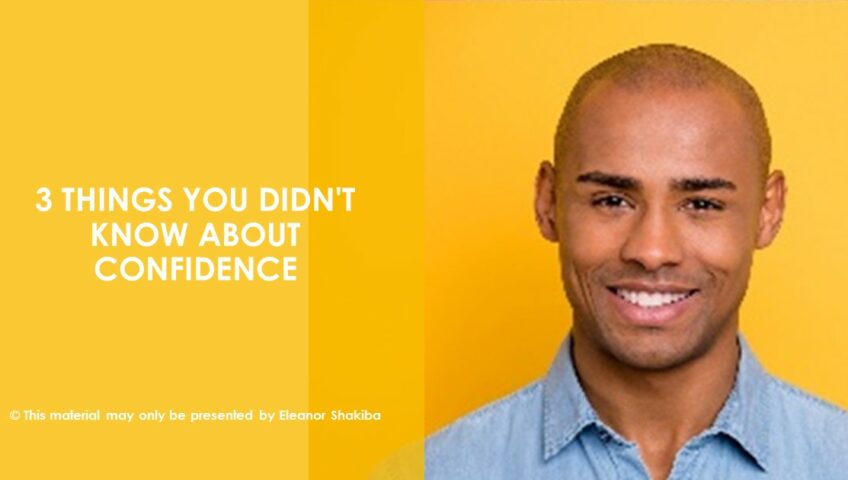Everyone wants to be confident, right? Yet it’s surprising how few of us understand the psychology of confidence. This means many of us believe myths about what it takes to be a thriving, confident person. Sadly, some of these myths actually erode our self-assurance. So let’s bust three very prevalent – but incorrect – assumptions about confidence right now.
Myth 1: you need high self-esteem in order to be confident
Actually, it turns out there’s something far more significant. This is your level of self-agency. “What’s that?” I hear you ask. It’s your sense of personal power, reflected in how much you believe you can change your own world. It turns out that people with high levels of self-agency are far more likely to have high levels of self-confidence than those with strong self-esteem.
Of course, this doesn’t mean that working on your self-esteem is a wasted effort. It simply suggests that in boosting your confidence, you also boost your self-agency. You benefit from improving your mindset about your capacity for meaningful action. The more that you believe you can make positive changes, the more likely you are to feel confident.
Myth 2: competence is a prerequisite for confidence
Again, this isn’t the case. Competence is your ability to do something. Confidence, on the other hand, is your belief that you can succeed. Think about this difference. Being confident means that you can overcome competence gaps. After all, having a strong conviction that you can succeed means you will be willing to learn. Thus, you will be able to boost your confidence.
It turns out that having a growth mindset is strongly correlated to willingness to learn. If you operate from the growth mindset position, you’ll see challenges and even mistakes as opportunities to learn. This will help you feel confident, as you tackle the task of mastering new skills.
Myth 3: all introverts lack confidence
There is no connection at all between confidence and introversion. Remember that introversion is a preference for drawing energy from within. This preference might lead introverts to prefer quiet settings and being alone. However, that doesn’t mean introverts lack social skills or confidence.
It’s worth remembering that extroverts and introverts behave in different ways when they lack confidence. Introverts tend to retreat from social situations. Meanwhile, extroverts may start talking more than normal. Although this might make them look confident, it doesn’t reflect true confidence. Learning this often makes introverts feel a great sense of relief. To me, this is ample evidence that comparing yourself to others doesn’t really help you understand how to genuinely be confident.
Remember that anyone can be confident, regardless of their personality preferences. However, many of us have learned to have low levels of confidence. If this is the case for you, there’s lots you can do about it.
About the author: Eleanor Shakiba
Eleanor is a positive psychology trainer and coach. Her passion is teaching skills for positive thinking, proactive communication and purposeful leadership. Her clients work in academia, education, IT, engineering, finance and health. Eleanor is qualified in Social Anthropology, Positive Psychology, Counselling, Coaching, Adult Education and Neuro Linguistic Programming. She’s the author of the Positive Psychology Toolkit for HR and L&D Practitioners, a free resource for trainers.
